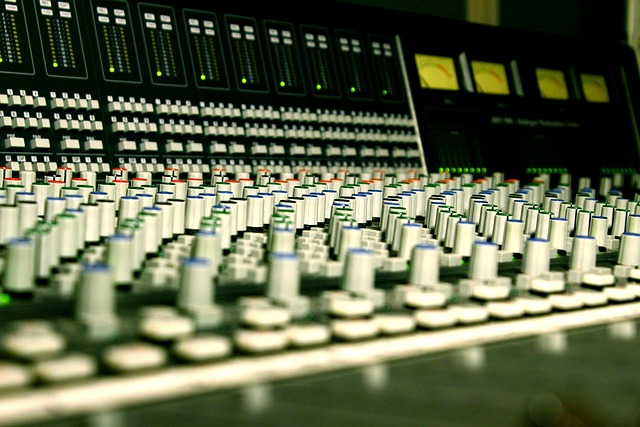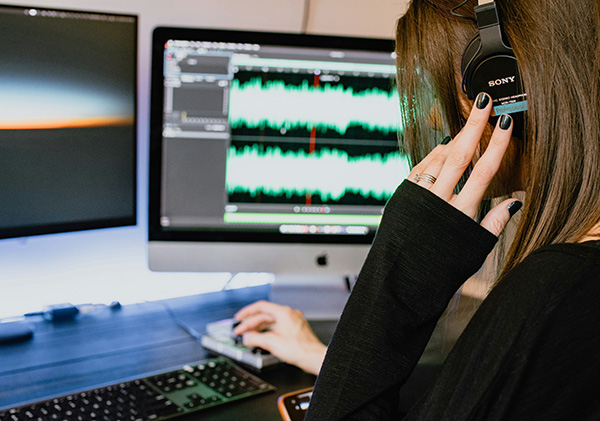A music producer oversees the creation of music, collaborating with artists to bring their vision to life, while a ghost producer works anonymously behind the scenes.
Tasks of a (Ghost) Producer
History of the Music Producer
Famous Music Producers
Music Production Tips & Techniques
Tasks of a (Ghost) Producer
Overseeing the recording process
A music producer is responsible for managing the entire recording process, from start to finish. They coordinate the logistics, schedule studio time, and ensure that everything runs smoothly during recording sessions.
Understanding the artist’s vision
A crucial aspect of music production is understanding the artist’s creative vision. The producer works closely with the artist to comprehend their musical goals, influences, and desired sound, ensuring that the final product aligns with their vision.
Managing recording budgets
Producers often handle the financial aspects of recording, including setting and managing recording budgets. They allocate resources effectively to cover studio costs, session musicians, equipment, and other expenses.
Assembling the right team
A producer is responsible for assembling a team of talented individuals to contribute to the recording process. This includes hiring session musicians, engineers, and other professionals who can bring their expertise to enhance the music.
Providing guidance during recording sessions
The producer takes an active role during recording sessions, providing guidance to the artists and musicians. They may offer suggestions on performance, arrangement, and instrumentation, helping to bring out the best in the artists and capture the desired sound.
Ensuring tracks are on target and delivered on time
Throughout the production process, the producer keeps a close eye on the progress of each track. They ensure that the recordings meet the artistic goals, maintaining the desired quality and style. They also work towards timely completion and delivery of the finished tracks.
Shaping the overall sound and artistic direction
A key role of the producer is to shape the overall sound and artistic direction of the music. They make creative decisions regarding arrangements, instrumentation, vocal arrangements, and production techniques. The producer’s input helps to define the unique sonic identity of the music.
History of the Music Producer
The history of music producers can be traced back to the early days of recorded music. In the early 20th century, record producers were primarily responsible for technical aspects of recording, ensuring that the equipment and recording process captured the desired sound. As technology advanced, producers began to take on a more creative role, shaping the artistic direction of the music.
One notable figure in the history of music production is Joe Meek, a British producer known for his innovative recording techniques in the 1960s. Meek experimented with unconventional methods and sounds, pushing the boundaries of what was considered traditional production at the time.
In the 1960s, the role of the producer expanded further with the emergence of the “producer as artist” concept. Producers like Phil Spector and George Martin played a significant role in shaping the sound of popular music, working closely with artists to create iconic recordings.
The 1970s and 1980s saw the rise of producer-driven music, with producers such as Quincy Jones, Nile Rodgers, and Brian Eno making significant contributions to the sound and success of artists they worked with. These producers brought their unique creative vision and technical expertise to the forefront of the music-making process.
In recent decades, advancements in technology have democratized music production, allowing artists to produce their own music with accessible recording equipment and software. However, professional music producers continue to play a vital role in the industry, offering their expertise, guidance, and artistic direction to artists and ensuring the highest quality of the final product.
Overall, the history of music producers showcases their evolution from technical engineers to creative collaborators, shaping the sound and direction of recorded music throughout the years.

Essential Tools of the Music Producer
Digital Audio Workstation (DAW)
The DAW is the central hub of a music production studio. It provides the necessary tools for writing, producing, and arranging songs. It allows producers to record, edit, mix, and master audio tracks.
Audio Interface
An audio interface serves as a bridge between the computer and other audio equipment. It provides essential inputs and outputs for connecting microphones, instruments, and studio monitors. The audio interface often includes preamps and analog-to-digital converters for high-quality audio recording and playback.
Headphones
High-quality headphones are crucial for music producers. They allow for accurate monitoring and critical listening during the production process. Headphones provide isolation from external noise and reveal details that may be missed with studio monitors. They are essential for making precise adjustments to the mix and ensuring the overall sound quality.


Famous Music Producers
Famous music producers have made significant contributions to the music industry, shaping the sound and direction of countless artists and albums. Here are a few notable music producers:
Berry Gordy
Founder of Motown Records, Gordy’s innovative production techniques and the distinct “Tamla sound” played a pivotal role in shaping the landscape of African American music.
George Martin
Known as the “Fifth Beatle,” Martin produced numerous albums for The Beatles and is credited with pushing the boundaries of studio recording and revolutionizing the music industry.
Nile Rodgers
A legendary producer, songwriter, and guitarist, Rodgers co-founded the band Chic and produced hit songs for artists like David Bowie, Diana Ross, Madonna, and Daft Punk.
Rick Rubin
Rubin’s productions have spanned various genres, and he has worked with artists such as Johnny Cash, Beastie Boys, and Red Hot Chili Peppers. His innovative and diverse production style has left a lasting impact on the music industry.
Timbaland
Known for his unique sounds, intricate rhythms, and unconventional production techniques, Timbaland has produced hits for artists like Missy Elliott, Aaliyah, Justin Timberlake, and Nelly Furtado.
Trevor Horn
A highly influential figure in the music industry, Horn has produced and co-written numerous hits since the 1970s. He is known for his work with artists like The Buggles, Yes, and Frankie Goes to Hollywood.
Three Music Producer Tips & Techniques
Focus on Developing Skills
Building strong foundational skills is essential for music producers. Instead of relying solely on new gear or technology, prioritize honing your production skills. Learn how to effectively use the tools you have, study different mic techniques, understand the basics of acoustics, and improve your recording and mixing abilities.
Establish Productive Habits
Consistency and discipline are key to growth as a music producer. Develop habits like active listening, generating ideas regularly, watching tutorials, and pushing yourself to finish songs. Working on a schedule and being consistent in your practice will help you improve and progress as a producer.
Seek Inspiration and Feedback
Continuously seek inspiration and stay updated on new techniques. Learn from other successful producers by watching studio sessions, tutorials, or videos. Additionally, seek feedback from other producers to gain fresh perspectives and identify areas for improvement. Engaging with the music production community can provide valuable insights and help you grow as a producer.
Why Hire a Professional (Ghost) Producer for Your Music Project?
Here are five reasons why you might consider hiring a professional (ghost) producer:
Expertise and Skill
Professional producers have extensive experience and expertise in music production. They possess a deep understanding of music theory, sound design, arrangement, and mixing techniques. Hiring a professional producer ensures that your music will be crafted with precision and high-quality production values.
Fresh Perspective and Creativity
Collaborating with a professional producer brings a fresh perspective to your music. They can offer new ideas, innovative production techniques, and help you explore different genres or styles. Their creative input can elevate your music and make it stand out.
Quality and Commercial Viability
A professional producer can help you achieve a polished and commercially viable sound. They have a keen ear for detail, ensuring that your music meets industry standards and has the potential to resonate with a wider audience. Their expertise in mixing and mastering can enhance the overall sonic quality of your tracks.
Access to Industry Connections
Professional producers often have a network of industry connections, including session musicians, engineers, and other professionals. They can help facilitate collaborations, provide access to resources, and guide you through the music industry landscape. This can be particularly beneficial for emerging artists looking to establish themselves.
Quality and Commercial Viability
A professional producer can help you achieve a polished and commercially viable sound. They have a keen ear for detail, ensuring that your music meets industry standards and has the potential to resonate with a wider audience. Their expertise in mixing and mastering can enhance the overall sonic quality of your tracks.